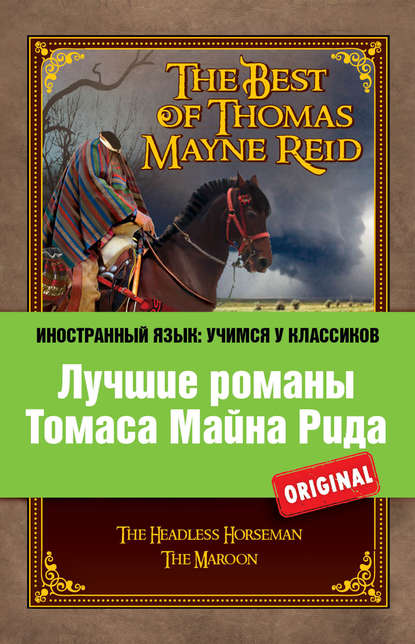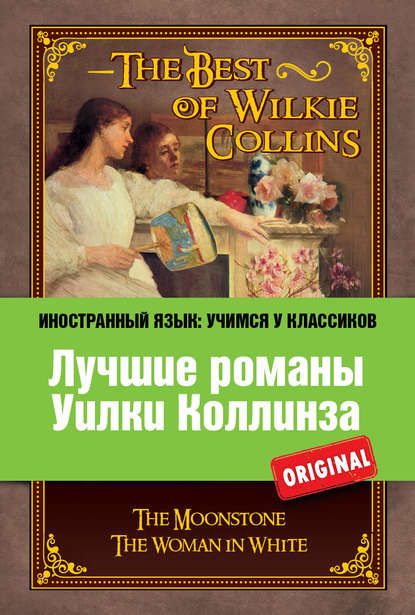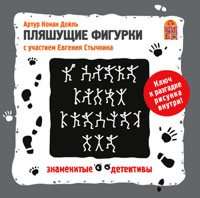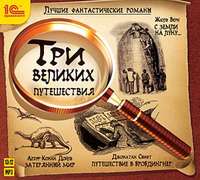
Полная версия
Лучшие расследования Шерлока Холмса / The Best of Sherlock Holmes
“Sarasate[27] plays at the St. James’s Hall[28] this afternoon,” he remarked. “What do you think, Watson? Could your patients spare you for a few hours?”
“I have nothing to do to-day. My practice is never very absorbing.”
“Then, put on your hat, and come. I am going through the City first, and we can have some lunch on the way. I observe that there is a good deal of German music on the programme, which is rather more to my taste than Italian or French. It is introspective, and I want to introspect. Come along!”
We travelled by the Underground as far as Aldersgate[29]; and a short walk took us to Saxe-Coburg-square, the scene of the singular story which we had listened to in the morning. It was a poky, little, shabby-genteel place, where four lines of dingy two-storied brick houses looked out into a small railed-in enclosure, where a lawn of weedy grass, and a few clumps of faded laurel bushes made a hard fight against a smoke-laden and uncongenial atmosphere. Three gilt balls and a brown board with “Jabez Wilson” in white letters, upon a corner house, announced the place where our red-headed client carried on his business. Sherlock Holmes stopped in front of it with his head on one side, and looked it all over, with his eyes shining brightly between puckered lids. Then he walked slowly up the street, and then down again to the corner, still looking keenly at the houses. Finally he returned to the pawnbroker’s, and, having thumped vigorously upon the pavement with his stick two or three times, he went up to the door and knocked. It was instantly opened by a bright-looking, clean-shaven young fellow, who asked him to step in.
“Thank you,” said Holmes, “I only wished to ask you how you would go from here to the Strand.”
“Third right, fourth left,” answered the assistant promptly, closing the door.
“Smart fellow, that,” observed Holmes, as we walked away. “He is, in my judgment, the fourth smartest man in London, and for daring I am not sure that he has not a claim to be third. I have known something of him before.”
“Evidently,” said I, “Mr. Wilson’s assistant counts for a good deal in this mystery of the Red-headed League. I am sure that you inquired your way merely in order that you might see him.”
“Not him.”
“What then?”
“The knees of his trousers.”
“And what did you see?”
“What I expected to see.”
“Why did you beat the pavement?”
“My dear Doctor, this is a time for observation, not for talk. We are spies in an enemy’s country. We know something of Saxe-Coburg-square. Let us now explore the parts which lie behind it.”
The road in which we found ourselves as we turned round the corner from the retired Saxe-Coburg-square presented as great a contrast to it as the front of a picture does to the back. It was one of the main arteries which convey the traffic of the City to the north and west. The roadway was blocked with the immense stream of commerce flowing in a double tide inwards and outwards, while the footpaths were black with the hurrying swarm of pedestrians. It was difficult to realize as we looked at the line of fine shops and stately business premises that they really abutted on the other side upon the faded and stagnant square which we had just quitted.
“Let me see,” said Holmes, standing at the corner, and glancing along the line, “I should like just to remember the order of the houses here. It is a hobby of mine to have an exact knowledge of London. There is Mortimer’s, the tobacconist, the little newspaper shop, the Coburg branch of the City and Suburban Bank, the Vegetarian Restaurant, and McFarlane’s carriage-building depôt. That carries us right on to the other block. And now, Doctor, we’ve done our work, so it’s time we had some play. A sandwich, and a cup of coffee, and then off to violin-land, where all is sweetness, and delicacy, and harmony, and there are no red-headed clients to vex us with their conundrums.”
My friend was an enthusiastic musician, being himself not only a very capable performer, but a composer of no ordinary merit. All the afternoon he sat in the stalls wrapped in the most perfect happiness, gently waving his long, thin fingers in time to the music, while his gently smiling face and his languid, dreamy eyes were as unlike those of Holmes the sleuth-hound; Holmes the relentless, keen-witted, ready-handed criminal agent, as it was possible to conceive. In his singular character the dual nature alternately asserted itself, and his extreme exactness and astuteness represented, as I have often thought, the reaction against the poetic and contemplative mood which occasionally predominated in him. The swing of his nature took him from extreme languor to devouring energy; and, as I knew well, he was never so truly formidable as when, for days on end, he had been lounging in his armchair amid his improvisations and his black-letter editions. Then it was that the lust of the chase would suddenly come upon him, and that his brilliant reasoning power would rise to the level of intuition, until those who were unacquainted with his methods would look askance at him as on a man whose knowledge was not that of other mortals. When I saw him that afternoon so enwrapped in the music at St. James’s Hall I felt that an evil time might be coming upon those whom he had set himself to hunt down.
“You want to go home, no doubt, Doctor,” he remarked, as we emerged.
“Yes, it would be as well.”
“And I have some business to do which will take some hours. This business at Coburg-square is serious.”
“Why serious?”
“A considerable crime is in contemplation. I have every reason to believe that we shall be in time to stop it. But to-day being Saturday rather complicates matters. I shall want your help to-night.”
“At what time?”
“Ten will be early enough.”
“I shall be at Baker-street at ten.”
“Very well. And, I say, Doctor! there may be some little danger, so kindly put your army revolver in your pocket.” He waved his hand, turned on his heel, and disappeared in an instant among the crowd.
I trust that I am not more dense than my neighbours, but I was always oppressed with a sense of my own stupidity in my dealings with Sherlock Holmes. Here I had heard what he had heard, I had seen what he had seen, and yet from his words it was evident that he saw clearly not only what had happened, but what was about to happen, while to me the whole business was still confused and grotesque. As I drove home to my house in Kensington I thought over it all, from the extraordinary story of the red-headed copier of the “Encyclopædia” down to the visit to Saxe-Coburg-square, and the ominous words with which he had parted from me. What was this nocturnal expedition, and why should I go armed? Where were we going, and what were we to do? I had the hint from Holmes that this smooth-faced pawnbroker’s assistant was a formidable man – a man who might play a deep game. I tried to puzzle it out, but gave it up in despair, and set the matter aside until night should bring an explanation.
It was a quarter past nine when I started from home and made my way across the Park, and so through Oxford-street to Baker-street. Two hansoms were standing at the door, and, as I entered the passage, I heard the sound of voices from above. On entering his room, I found Holmes in animated conversation with two men, one of whom I recognized as Peter Jones, the official police agent; while the other was a long, thin, sad-faced man, with a very shiny hat and oppressively respectable frock-coat.
“Ha! our party is complete,” said Holmes, buttoning up his pea-jacket, and taking his heavy hunting crop from the rack. “Watson, I think you know Mr. Jones, of Scotland-yard[30]? Let me introduce you to Mr. Merryweather, who is to be our companion in to-night’s adventure.”
“We’re hunting in couples again, Doctor, you see,” said Jones, in his consequential way. “Our friend here is a wonderful man for starting a chase. All he wants is an old dog to help him to do the running down.”
“I hope a wild goose may not prove to be the end of our chase,” observed Mr. Merryweather, gloomily.
“You may place considerable confidence in Mr. Holmes, sir,” said the police agent, loftily. “He has his own little methods, which are, if he won’t mind my saying so, just a little too theoretical and fantastic, but he has the makings of a detective in him. It is not too much to say that once or twice, as in that business of the Sholto murder and the Agra treasure, he has been more nearly correct than the official force.”
“Oh, if you say so, Mr. Jones, it is all right!” said the stranger, with deference. “Still, I confess that I miss my rubber. It is the first Saturday night for seven-and-twenty years that I have not had my rubber.”
“I think you will find,” said Sherlock Holmes, “that you will play for a higher stake to-night than you have ever done yet, and that the play will be more exciting. For you, Mr. Merryweather, the stake will be some thirty thousand pounds; and for you, Jones, it will be the man upon whom you wish to lay your hands.”
“John Clay, the murderer, thief, smasher and forger. He’s a young man, Mr. Merryweather, but he is at the head of his profession, and I would rather have my bracelets on him than on any criminal in London. He’s a remarkable man, is young John Clay. His grandfather was a Royal Duke, and he himself has been to Eton and Oxford. His brain is as cunning as his fingers, and though we meet signs of him at every turn, we never know where to find the man himself. He’ll crack a crib in Scotland one week, and be raising money to build an orphanage in Cornwall the next. I’ve been on his track for years, and have never set eyes on him yet.”
“I hope that I may have the pleasure of introducing you to-night. I’ve had one or two little turns also with Mr. John Clay, and I agree with you that he is at the head of his profession. It is past ten, however, and quite time that we started. If you two will take the first hansom, Watson and I will follow in the second.”
Sherlock Holmes was not very communicative during the long drive, and lay back in the cab humming the tunes which he had heard in the afternoon. We rattled through an endless labyrinth of gas-lit streets until we emerged into Farringdon-street.
“We are close there now,” my friend remarked. “This fellow Merryweather is a bank director and personally interested in the matter. I thought it as well to have Jones with us also. He is not a bad fellow, though an absolute imbecile in his profession. He has one positive virtue. He is as brave as a bulldog, and as tenacious as a lobster if he gets his claws upon anyone. Here we are, and they are waiting for us.”
We had reached the same crowded thoroughfare in which we had found ourselves in the morning. Our cabs were dismissed, and, following the guidance of Mr. Merryweather, we passed down a narrow passage, and through a side door, which he opened for us. Within there was a small corridor, which ended in a very massive iron gate. This also was opened, and led down a flight of winding stone steps, which terminated at another formidable gate. Mr. Merryweather stopped to light a lantern, and then conducted us down a dark, earth-smelling passage, and so, after opening a third door, into a huge vault or cellar, which was piled all round with crates and massive boxes.
“You are not very vulnerable from above,” Holmes remarked, as he held up the lantern, and gazed about him.
“Nor from below,” said Mr. Merryweather, striking his stick upon the flags which lined the floor. “Why, dear me, it sounds quite hollow!” he remarked, looking up in surprise.
“I must really ask you to be a little more quiet,” said Holmes, severely. “You have already imperilled the whole success of our expedition. Might I beg that you would have the goodness to sit down upon one of those boxes, and not to interfere?”
The solemn Mr. Merryweather perched himself upon a crate, with a very injured expression upon his face, while Holmes fell upon his knees upon the floor, and, with the lantern and a magnifying lens, began to examine minutely the cracks between the stones. A few seconds sufficed to satisfy him, for he sprang to his feet again, and put his glass in his pocket.
“We have at least an hour before us,” he remarked, “for they can hardly take any steps until the good pawnbroker is safely in bed. Then they will not lose a minute, for the sooner they do their work the longer time they will have for their escape. We are at present, Doctor – as no doubt you have divined – in the cellar of the City branch of one of the principal London banks. Mr. Merryweather is the chairman of directors, and he will explain to you that there are reasons why the more daring criminals of London should take a considerable interest in this cellar at present.”
“It is our French gold,” whispered the director. “We have had several warnings that an attempt might be made upon it.”
“Your French gold?”
“Yes. We had occasion some months ago to strengthen our resources, and borrowed, for that purpose, thirty thousand napoleons[31] from the Bank of France. It has become known that we have never had occasion to unpack the money, and that it is still lying in our cellar. The crate upon which I sit contains two thousand napoleons packed between layers of lead foil. Our reserve of bullion is much larger at present than is usually kept in a single branch office, and the directors have had misgivings upon the subject.”
“Which were very well justified,” observed Holmes. “And now it is time that we arranged our little plans. I expect that within an hour matters will come to a head. In the meantime, Mr. Merryweather, we must put the screen over that dark lantern.”
“And sit in the dark?”
“I am afraid so. I had brought a pack of cards in my pocket, and I thought that, as we were a partie carrée[32], you might have your rubber after all. But I see that the enemy’s preparations have gone so far that we cannot risk the presence of a light. And, first of all, we must choose our positions. These are daring men, and, though we shall take them at a disadvantage they may do us some harm, unless we are careful. I shall stand behind this crate, and do you conceal yourselves behind those. Then, when I flash a light upon them, close in swiftly. If they fire, Watson, have no compunction about shooting them down.”
I placed my revolver, cocked, upon the top of the wooden case behind which I crouched. Holmes shot the slide across the front of his lantern, and left us in pitch darkness – such an absolute darkness as I have never before experienced. The smell of hot metal remained to assure us that the light was still there, ready to flash out at a moment’s notice. To me, with my nerves worked up to a pitch of expectancy, there was something depressing and subduing in the sudden gloom, and in the cold, dank air of the vault.
“They have but one retreat,” whispered Holmes. “That is back through the house into Saxe-Coburg-square. I hope that you have done what I asked you, Jones?”
“l have an inspector and two officers waiting at the front door.”
“Then we have stopped all the holes. And now we must be silent and wait.”
What a time it seemed! From comparing notes afterwards it was but an hour and a quarter, yet it appeared to me that the night must have almost gone, and the dawn be breaking above us. My limbs were weary and stiff, for I feared to change my position, yet my nerves were worked up to the highest pitch of tension, and my hearing was so acute that I could not only hear the gentle breathing of my companions, but I could distinguish the deeper, heavier in-breath of the bulky Jones from the thin, sighing note of the bank director. From my position I could look over the case in the direction of the floor. Suddenly my eyes caught the glint of a light.
At first it was but a lurid spark upon the stone pavement. Then it lengthened out until it became a yellow line, and then, without any warning or sound, a gash seemed to open and a hand appeared, a white, almost womanly hand, which felt about in the centre of the little area of light. For a minute or more the hand, with its writhing fingers, protruded out of the floor. Then it was withdrawn as suddenly as it appeared, and all was dark again save the single lurid spark, which marked a chink between the stones.
Its disappearance, however, was but momentary. With a rending, tearing sound, one of the broad, white stones turned over upon its side and left a square, gaping hole, through which streamed the light of a lantern. Over the edge there peeped a clean-cut, boyish face, which looked keenly about it, and then, with a hand on either side of the aperture, drew itself shoulder high and waist high, until one knee rested upon the edge. In another instant he stood at the side of the hole, and was hauling after him a companion, lithe and small like himself, with a pale face and a shock of very red hair.
“It’s all clear,” he whispered. “Have you the chisel and the bags. Great Scott! Jump, Archie, jump, and I’ll swing for it!”
Sherlock Holmes had sprung out and seized the intruder by the collar. The other dived down the hole, and I heard the sound of rending cloth as Jones clutched at his skirts. The light flashed upon the barrel of a revolver, but Holmes’s hunting crop came down on the man’s wrist, and the pistol clinked upon the stone floor.
“It’s no use, John Clay,” said Holmes blandly, “You have no chance at all.”
“So I see,” the other answered, with the utmost coolness. “I fancy that my pal is all right, though I see you have got his coat-tails.”
“There are three men waiting for him at the door,” said Holmes.
“Oh, indeed. You seem to have done the thing very completely. I must compliment you.”
“And I you,” Holmes answered. “Your red-headed idea was very new and effective.”
“You’ll see your pal again presently,” said Jones. “He’s quicker at climbing down holes than I am. Just hold out while I fix the derbies.”
“I beg that you will not touch me with your filthy hands,” remarked our prisoner, as the handcuffs clattered upon his wrists. “You may not be aware that I have royal blood in my veins. Have the goodness also when you address me always to say ‘sir’ and ‘please.’”
“All right,” said Jones, with a stare and a snigger. “Well, would you please, sir, march upstairs, where we can get a cab to carry your highness to the police-station.”
“That is better,” said John Clay, serenely. He made a sweeping bow to the three of us, and walked quietly off in the custody of the detective.
“Really, Mr. Holmes,” said Mr. Merryweather, as we followed them from the cellar, “I do not know how the bank can thank you or repay you. There is no doubt that you have detected and defeated in the most complete manner one of the most determined attempts at bank robbery that have ever come within my experience.”
“I have had one or two little scores of my own to settle with Mr. John Clay,” said Holmes, “I have been at some small expense over this matter, which I shall expect the bank to refund, but beyond that I am amply repaid by having had an experience which is in many ways unique, and by hearing the very remarkable narrative of the Red-headed League.”
“You see, Watson,” he explained, in the early hours of the morning, as we sat over a glass of whisky and soda in Baker-street, “it was perfectly obvious from the first that the only possible object of this rather fantastic business of the advertisement of the League, and the copying of the ‘Encyclopædia,’ must be to get this not over-bright pawnbroker out of the way for a number of hours every day. It was a curious way of managing it, but really it would be difficult to suggest a better. The method was no doubt suggested to Clay’s ingenious mind by the colour of his accomplice’s hair. The four pounds a week was a lure which must draw him, and what was it to them, who were playing for thousands? They put in the advertisement, one rogue has the temporary office, the other rogue incites the man to apply for it, and together they manage to secure his absence every morning in the week. From the time that I heard of the assistant having come for half wages, it was obvious to me that he had some strong motive for securing the situation.”
“But how could you guess what the motive was?”
“Had there been women in the house, I should have suspected a mere vulgar intrigue. That, however, was out of the question. The man’s business was a small one, and there was nothing in his house which could account for such elaborate preparations, and such an expenditure as they were at. It must then be something out of the house. What could it be? I thought of the assistant’s fondness for photography, and his trick of vanishing into the cellar. The cellar! There was the end of this tangled clue. Then I made inquiries as to this mysterious assistant, and found that I had to deal with one of the coolest and most daring criminals in London. He was doing something in the cellar – something which took many hours a day for months on end. What could it be, once more? I could think of nothing save that he was running a tunnel to some other building.
“So far I had got when we went to visit the scene of action. I surprised you by beating upon the pavement with my stick. I was ascertaining whether the cellar stretched out in front or behind. It was not in front. Then I rang the bell, and, as I hoped, the assistant answered it. We have had some skirmishes, but we had never set eyes upon each other before. I hardly looked at his face. His knees were what I wished to see. You must yourself have remarked how worn, wrinkled, and stained they were. They spoke of those hours of burrowing. The only remaining point was what they were burrowing for. I walked round the corner, saw that the City and Suburban Bank abutted on our friend’s premises, and felt that I had solved my problem. When you drove home after the concert I called upon Scotland Yard and upon the chairman of the bank directors, with the result that you have seen.”
“And how could you tell that they would make their attempt to-night?” I asked.
“Well, when they closed their League offices that was a sign that they cared no longer about Mr. Jabez Wilson’s presence, in other words, that they had completed their tunnel. But it was essential that they should use it soon, as it might be discovered, or the bullion might be removed. Saturday would suit them better than any other day, as it would give them two days for their escape. For all these reasons I expected them to come to-night.”
“You reasoned it out beautifully,” I exclaimed in unfeigned admiration. “It is so long a chain, and yet every link rings true.”
“It saved me from ennui,” he answered, yawning. “Alas! I already feel it closing in upon me. My life is spent in one long effort to escape from the commonplaces of existence. These little problems help me to do so.”
“And you are a benefactor of the race,” said I.
He shrugged his shoulders. “Well, perhaps, after all, it is of some little use,” he remarked. “‘L’homme c’est rien – l’œuvre c’est tout,’[33] as Gustave Flaubert wrote to Georges Sand.”[34]
A Case of Identity
“My dear fellow,” said Sherlock Holmes as we sat on either side of the fire in his lodgings at Baker Street, “life is infinitely stranger than anything which the mind of man could invent. We would not dare to conceive the things which are really mere commonplaces of existence. If we could fly out of that window hand in hand, hover over this great city, gently remove the roofs, and peep in at the queer things which are going on, the strange coincidences, the plannings, the cross-purposes, the wonderful chains of events, working through generation, and leading to the most outré results, it would make all fiction with its conventionalities and foreseen conclusions most stale and unprofitable.”
“And yet I am not convinced of it,” I answered. “The cases which come to light in the papers are, as a rule, bald enough, and vulgar enough. We have in our police reports realism pushed to its extreme limits, and yet the result is, it must be confessed, neither fascinating nor artistic.”
“A certain selection and discretion must be used in producing a realistic effect,” remarked Holmes. “This is wanting in the police report, where more stress is laid, perhaps, upon the platitudes of the magistrate than upon the details, which to an observer contain the vital essence of the whole matter. Depend upon it, there is nothing so unnatural as the commonplace.”














